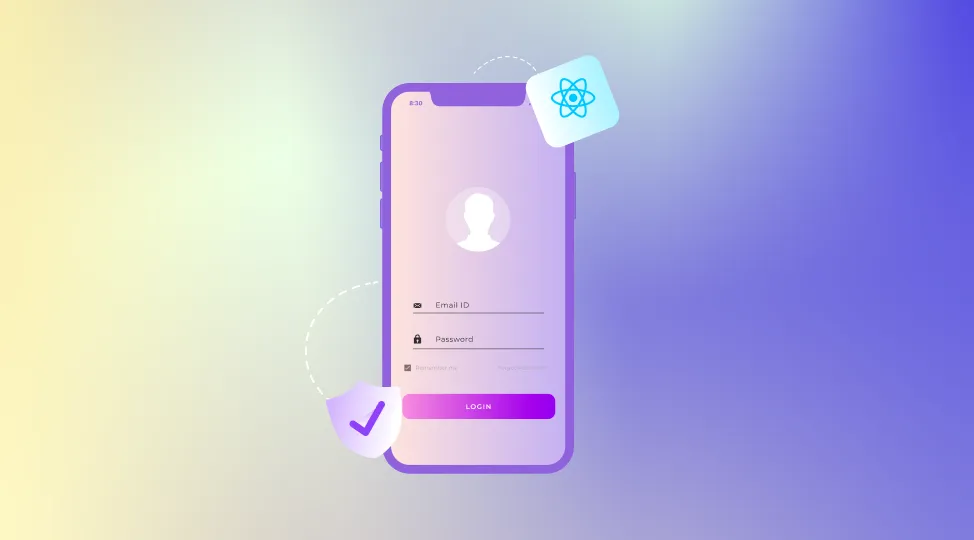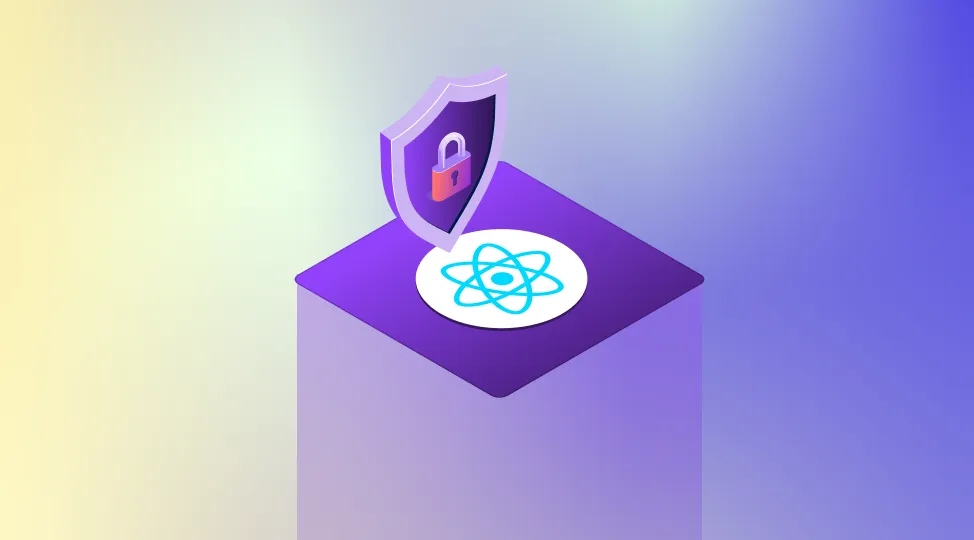We all know the current scenario in the mobile app development market! Making your app future-proof, user-friendly, and increasing ROI is all you need! So, picking the right Mobile app development technologies for your app is more crucial than ever. A wrong choice can lead to failures like user experience, skyrocketing development costs, or even the dreaded "app graveyard."
At Quokka Labs, we're not just keeping up with this fast pace but setting it. Our team of expert developers has hands-on experience with the top mobile app development technologies shaping the landscape in 2025 and beyond.
This guide will dive into the top 10 technologies powering the most innovative and successful mobile apps today. Whether you're a developer, small business, enterprise, or just exploring the app world, this is your roadmap to understanding what's hot!
Top Mobile App Development Frameworks for Developers to Explore

1) React Native – Among Top Mobile App Development Technologies
React Native reigns supreme as a favorite among developers for its unparalleled ability to create apps that feel truly native on both iOS and Android platforms. This cross-platform powerhouse boasts a component-based architecture that promotes code reusability and a streamlined development process. It's hot reloading feature allows developers to see changes instantly, significantly speeding up development cycles.
React Native in Action:
-
Instagram uses React Native's UI capabilities for a smooth user interface.
-
Facebook uses React Native to power its Ads Manager app.
-
Discord uses React Native for its mobile app, delivering seamless communication.
With a vibrant community and many third-party libraries, React Native continues to be a driving force in mobile app development, powering over 11% of the top 500 installed apps globally.
2) Flutter
Flutter has seen a staggering 110% year-over-year growth in app releases. Flutter is the rising star of the cross-platform world, and top mobile app development companies in USA use it, too. It lets developers build apps at breakneck speed without sacrificing visual appeal.
-
Rapid Development: Flutter's "hot reload" feature lets you see code changes instantly, making iteration a breeze.
-
Eye-Catching UI: Create stunning, custom user interfaces with Flutter's rich library of widgets.
-
One Codebase, Two Platforms: Write your app once in Dart (Flutter's language) and seamlessly deploy it on iOS and Android.
Flutter is among the top mobile app development technologies, and popular apps like Google Ads, Alibaba's Xianyu, and the BMW app showcase the power and beauty that Flutter brings to the mobile landscape. If a visually striking, performant app with a fast turnaround time is your goal, Flutter might be your perfect match.
3) Kotlin Multiplatform (for Android)
Kotlin Multiplatform is taking the Android world by storm as a modern, adopted by over 80% of the top 1000 Android apps, streamlined language that makes coding a breeze. What sets Kotlin apart in the landscape of mobile app development technologies?
-
Safety First: Kotlin's built-in features actively help you avoid those pesky null pointer exceptions and other common coding errors.
-
Plays Well with Java: Have a legacy Java codebase? No problem! Kotlin works seamlessly alongside it, letting you gradually modernize your project.
-
Community Love: Android developers use Kotlin in droves, drawn to its clarity and efficiency. This means a wealth of resources and support at your fingertips.
Big-name apps like Pinterest, Evernote, and Trello have already made the switch to Kotlin, proving it's not just for small projects.
4) Swift (for iOS)
Swift is used by 95% of newly created apps in the App Store. For crafting top-notch iOS experiences, Swift reigns supreme among the mobile app development technologies. Apple's own programming language delivers:
-
Blazing Performance: Swift code is optimized for speed, ensuring your apps run smoothly and responsively.
-
Enhanced Safety: Swift's strict typing and error handling helps you catch bugs early on, leading to more reliable apps.
-
Clean and Readable Code: Swift's concise syntax and modern features make your code a joy to work with, simplifying maintenance and collaboration.
-
Modern Features: Swift's optionals gracefully handle missing values, while protocols enable flexible and modular code design.
This powerful combination has attracted major players like Lyft, LinkedIn, and even Airbnb to build their iOS apps on the Swift foundation. If your sights are set on the Apple ecosystem, Swift for iOS app development is your go-to language.
5) Xamarin
Xamarin stands on the sturdy foundation of .NET, giving it a unique edge in mobile app development technologies. With Xamarin, you can build apps for iOS, Android, and Windows using a single shared C# codebase. This means less platform-specific code, faster development cycles, and easier maintenance – all critical factors when considering which mobile app development technology to choose.
But Xamarin isn't just about code sharing – it also shines when it comes to user experience. Xamarin apps boast native UI controls and leverage platform-specific hardware acceleration, resulting in apps that feel right at home on any device.
Some major apps built with Xamarin include:
- The World Bank Survey Solutions
- Storyo (video story creator)
- FreshDirect (grocery delivery)
- Olo (online food ordering platform)

6) Ionic
Ionic is the top among mobile app development platforms. It is your go-to if you're looking for a streamlined way to build apps across multiple platforms. This popular hybrid framework leverages familiar web techs like HTML, CSS, and JavaScript, making it a breeze for web developers to transition into mobile app creation.
-
Ease of Use: Ionic's intuitive command-line interface and pre-built components get you up and running quickly.
-
Extensive Component Library: Choose from a vast collection of UI elements to create a polished app without reinventing the wheel.
-
Cross-Platform Power: Build apps for iOS, Android, and the web with a single codebase, saving you time and effort.
-
Real-World Success: Major players like MarketWatch and Sworkit trust Ionic for their mobile apps.
Also Ionic helped to build over 5 million apps across various industries.
7) Progressive Web Apps (PWAs)
Progressive Web Apps (PWAs) are the bridge between websites and native apps. Also, PWAs have been shown to increase user engagement by an average of 137%. They offer the best of both worlds:
-
App-Like Experience: PWAs feel like native apps, complete with smooth navigation, push notifications, and even home screen icons.
-
Offline Capabilities: Unlike most websites, PWAs work offline or on flaky connections, thanks to clever caching and background syncing.
-
Discoverability: You can find PWAs are easily through search engines, unlike apps that require users to find them in app stores.
-
Lower Development Costs: PWAs often cost less to build and maintain than separate native apps for iOS and Android.
Major Apps Using PWA: Starbucks, Uber, Pinterest, Twitter Lite.
8) NativeScript
NativeScript empowers JavaScript developers to craft truly native mobile experiences. Leveraging your existing JavaScript (or TypeScript) skills, you get direct access to native platform APIs, ensuring optimal performance and a native look and feel on both iOS and Android.
-
Code Once, Run Everywhere: NativeScript's flexibility shines with its "write once, run anywhere" principle, allowing you to reuse a significant portion of your code across platforms.
-
Framework Compatibility: Seamlessly integrate popular frameworks like Angular and Vue.js for a streamlined development workflow.
-
Real-World Impact: Apps like MyPUMA, Smart Evaluation, and BitPoints Wallet demonstrate the power and versatility of NativeScript in production.
9) Low-Code/No-Code Platforms
Ever wished you could build an app without writing a single line of code? That's the magic of low-code/no-code platforms. These innovative tools empower non-technical users to create functional apps through visual interfaces and drag-and-drop components.
What's in it for you?
-
Faster development cycles, reduced costs, and the ability to bring your ideas to life without needing a team of developers.
-
Popular picks: Appy Pie, Adalo, and Bubble are leading the charge, offering intuitive platforms with a wealth of templates and features.
-
Perfect for Rapid prototyping, internal business tools, simple customer-facing apps, and even MVPs (minimum viable products).
While these platforms might not be the best fit for complex, high-performance apps, they're a game-changer for small businesses, enterprises, and individuals looking to quickly and easily create functional mobile experiences.
10) Emerging Technologies

Keep an eye on the horizon! Let's see some exciting top mobile app development trends:
-
Compose Multiplatform: Build stunning, responsive user interfaces for Android and iOS with Google's declarative UI toolkit.
-
Machine Learning in mobile apps: Integrate AI to offer personalized experiences, intelligent recommendations, and innovative features like image recognition and natural language processing.
-
Internet of Things (IoT) Integration: Seamlessly connect your mobile app with the expanding network of smart devices and sensors for real-time data exchange and automation.
-
Augmented Reality (AR) and Virtual Reality (VR): Entertain users with interactive experiences that blend the digital and physical worlds, opening possibilities for gaming, education, shopping, and more.
-
Beacon Technology: Enhance in-person experiences with proximity-based interactions and location-specific content delivery in retail, museums, and events.
-
Wearable App Integration: Extend your app's reach to smartwatches and other wearables, offering convenient access to features and information on the go.
-
Touchless UI: Design intuitive interfaces that respond to gestures and voice commands, enhancing accessibility and user experience.
-
Voice Search: Allow users to interact with your app through natural language, making searches and navigation more convenient.
-
On-Demand Apps: Cater to the growing demand for instant ride-sharing, food delivery, and personal care access.
-
5G Technology: Leverage the lightning-fast speeds and low latency of 5G networks to deliver seamless streaming, real-time interactions, and immersive experiences.
These technologies are pushing boundaries and opening new possibilities for the future of mobile apps. While they may not be mainstream, they're worth exploring if you're looking for cutting-edge solutions.
Final Words
The mobile app world is buzzing with possibilities! From established frameworks like React Native and Flutter to emerging technologies, Compose Multiplatform, IoT integration, AI-powered apps, immersive AR/VR experiences, precise beacon technology, wearable app integration, touchless UI, voice search, on-demand services, and lightning-fast 5G networks, there's a world of innovation to explore.
Ready to bring your app idea to life? Contact the best mobile app development company, Quokka Labs, which thrives on the cutting edge.
Don't wait! Let's discuss your vision and discover how our expertise can propel your project forward!

FAQs
Q1: What are the most popular mobile app development technologies in 2025?
Ans. React Native, Flutter, Kotlin, Swift, and Xamarin are currently among the most popular choices for mobile app development. However, emerging technologies like KMM and Compose Multiplatform are quickly gaining traction.
Q2: Which mobile app development technology is best for cross-platform development?
Ans. React Native, Flutter, and Xamarin are excellent options for cross-platform app development. They allow you to build apps for both iOS and Android using a single codebase, saving time and resources.
Q3: What are the advantages of using native mobile app development technologies like Kotlin and Swift?
Ans. Native technologies like Kotlin (for Android) and Swift (for iOS) offer superior performance, a more seamless user experience, and better access to platform-specific features compared to cross-platform options.
Q4: What are some emerging mobile app development technologies to watch out for in the future?
Ans. Keep an eye on KMM, Compose Multiplatform, AI and machine learning integration, IoT, AR/VR, beacon technology, wearable app integration, touchless UI, voice search, on-demand apps, and 5G technology. These innovations are poised to shape the future of mobile app development.
Q5: How can I choose the right mobile app development technology for my project?
Ans. The best technology for your project depends on your specific requirements, budget, timeline, and target audience. Consider factors like the complexity of your app, desired features, and platform compatibility. Consulting with experienced mobile app developers can help you make an informed decision.
Tags
mobile technologies
iOS development
Android Development
App Development
Mobile app Development



 Facebook
Facebook
 Twitter
Twitter
 LinkedIn
LinkedIn
 Pinterest
Pinterest








